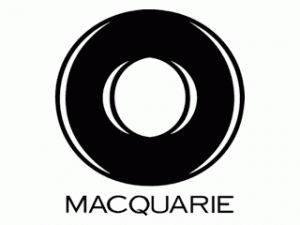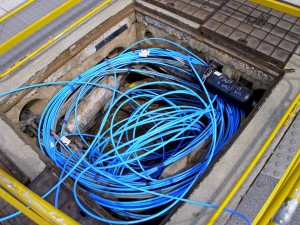- Broadband Bytes for 2014-04-04 http://t.co/i5vurLyYhK ->
- Why is there no ISP competition? Because building one is hard and expensive. http://t.co/gnksgQjZKt ->
- I have serious doubts that wireless can offer even adequate service compared to wired options. http://t.co/EtJ8H2zKIH ->
- Legacy TV operators are upset at the shift to OTT video? You don't say! http://t.co/Wt9L5R2EwA ->
- Comcast wins yet another "Worst Company in America" award. I'm sure they're really proud of that. http://t.co/79Ksc0lTbF ->
- My gut tells me that LA will sell itself short in a desperate attempt to get something, ANYTHING in the city. http://t.co/3tVCVTlIL4 ->
- Little Cottonwood Canyon is about to get a broadband upgrade, but it's primarily wireless. http://t.co/prc6PheJEc ->
- Cell service from Comcast? No thanks. http://t.co/PdRAmXXuNB ->
- Even with the city on your side, you're not immune from construction delays. http://t.co/NGnJUSAmL4 ->
- The MPAA is still stuck in "sue everyone" mode. http://t.co/oWGzBdXHd8 ->
- Streaming video is very, very broken. http://t.co/OIJriubplt ->
- Really, Comcast? All of your markets are hyper-competitive? http://t.co/nt4oDZ5NCA ->
- Australia decides that FTTN is "good enough". http://t.co/pZwJUX02h0 ->
- I don't think anyone can predict the depths of Comcast's denial. http://t.co/0mx6n5rTa0 ->
- Comcast is greasing all the wheels ahead of its proposed merger. http://t.co/MQ6Tx9h4wu ->
Subscribe
Follow Us!
Upcoming Events
Nothing that I know of. If you know of something upcoming, drop me a line so I can get it posted.
FreeUTOPIA Podcast
The podcast is currently on hiatus.
Visit the Show Page on BlogTalkRadio!Recent Comments
- Ray on FreeUTOPIA! FAQ
- Dolores Hansen Nelson on A Broadband Moonshot for Utah
- Anonymoose on West Valley City announces partnership with Ooma to provide free phone service to all residents
- Jesse on West Valley City announces partnership with Ooma to provide free phone service to all residents
- Jesse on Further UTOPIA Installation Details
Fiber Advocates
Important Sites
Networks
Categories
Tag Cloud
#utpol AT&T Brigham City Broadband Bytes broadband stimulus Broadweave Centerville CenturyLink Comcast competition DOCSIS 3.0 FCC FIOS FTTN google Google Fiber Hulu iProvo Layton Macquarie Mstar Netflix Nuvont Orem Perry Podcast Prime Time Communications Provo Qwest SAA service providers Sprint Time Warner Tremonton U-CAN UIA Utah Taxpayers Association UTOPIA Veracity Veracity Networks Verizon VoIP West Valley City WiMax XMissionCopyright Notice

This work is licensed under a Creative Commons Attribution Noncommercial Share Alike 3.0 United States License.







